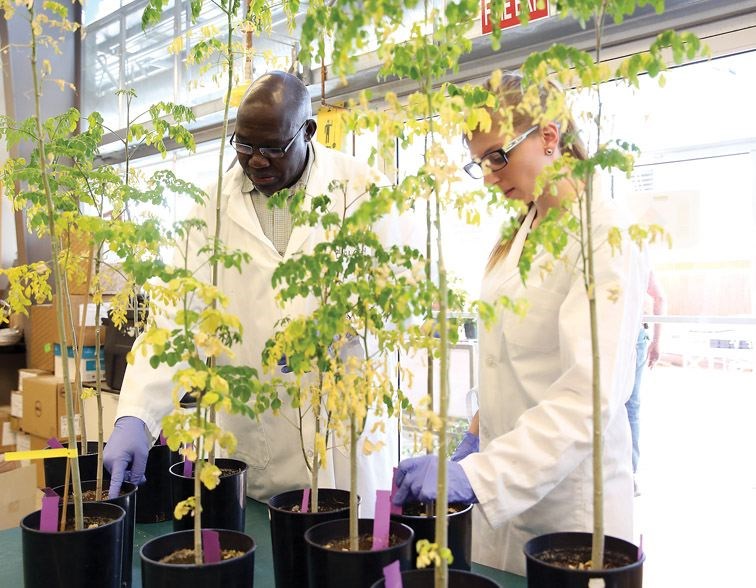Could the ground-up roots of a tree native to the southern foothills of the Himalayas be the answer to water treatment troubles in remote Canadian communities?
That's a possibility University of Northern British Columbia professor Chris Opio and graduate student Chandehl Morgan are investigating with regard to the moringa oleifera.
On Wednesday, they retrieved 11 of the trees that have been growing since they were planted about six months ago in a greenhouse at the I.K. Barber Enhanced Forestry Lab and began experiments that are expected to take until the end of this year to yield the answer.
Studies conducted in the United States have shown the seeds, when ground into a powder, are 99 per cent effective in eliminating faecal coliforms in water. But that means waiting for the trees to mature while the roots can be uplifted without killing the tree.
A further advantage, said Opio, is the rest of the tree can then be used for other purposes. The moringa, which is now widely grown in the tropics and into the southern U.S., is perhaps better known as a source of herbal medicine and nutrition and is even being looked at as a form of biodiesel.
"Why not look at the roots?," Opio said.
In both dry and green powder form, the roots will be put be put into batches of water collected from around Prince George known to contain eColi to see which is more effective and in what quantities.
The powders will also be put into distilled water to see if it adds any chemicals or organic matter, and analyzed for acidity and electrical conductivity. The data collected will be used to see whether they produce water clean enough to meet Canadian guidelines.
Depending on the outcome, Opio said the study will continue with mature Moringa, about 12 years old.
"That will take us out of Canada and to areas where Moringa grow, like Uganda, because we want to see if the chemicals change over time...but the results we get here will give us some indication of whether there is something," Opio said.
As it stands, treating water involves either boiling, which is labour intensive and uses up fuel, filtration, which can be difficult to implement in remote communities, or dropping in chlorine tablets, which can leave an unpleasant taste. First Nations reserves in particular have been making headlines for their problems combatting waterborne diseases.
"So we are just trying to find out if it is useable or not and, if it is, whether it's a sustainable method of water purification," Opio said.



